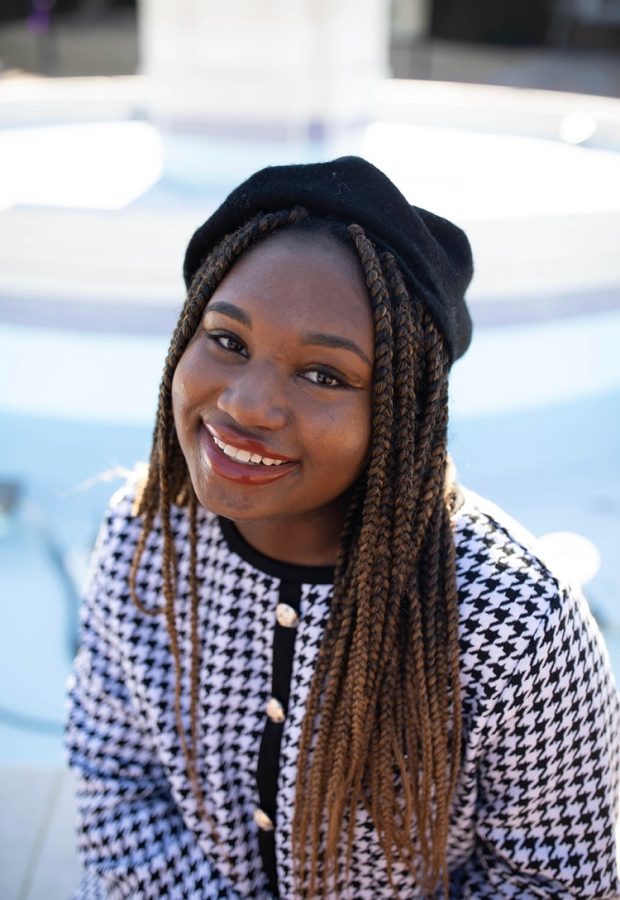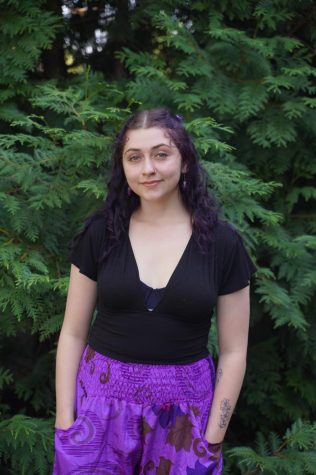Edwards advocates for international inclusion
February 27, 2022
Traveling its obstacle-ridden road to a representative form of government that better boosts intersectional representation on campus, the University of North Alabama’s Student Government Association, or the SGA, appointed sophomore Kennedy Edwards as its diversity and inclusion advocate.
The position of diversity and inclusion advocate itself was created by Tate Gooch, who served as president of the SGA prior to its current leader, Jake Statom. He hoped to reassure UNA’s cultural and ethnic minorities of the association’s evolving struggle to voice their opinions and reflect their values.
Few would disagree with the statement that racial tensions in the United States feel as though they get tighter by the day. Alabama specifically has been subject to controversy with reference to issues not only of domestic racism but also of deep-seated xenophobia. It is not news that Alabamians, like most Americans, have conflicting thoughts on foreign policy. In all historical respects, the U.S.’s relationship to foreign countries has always been a behemoth to battle. As a result of its puzzling struggle to coexist with other nations, its inhabitants are steadily uneasy when they acquaint themselves with people from other countries, even if they do not fully realize it.
Upon arriving in the U.S., non-natives are recurrently met with a myriad of reactions from their American recipients. Sometimes, they are greeted with a welcome that is warm but timid and nervous. Others, their arrival is celebrated
with excited enthusiasm. In undesirable scenarios, they are not welcomed at all; they are seen as alien and scorned for that which sets them apart from American social norms.
Naturally, those who come from remote places to visit or live in America suffer more often than not from feelings of uneasiness. Such is commonly the case for UNA’s students who have come from overseas regions. The university’s Office of International Affairs offers them help familiarizing themselves with common characteristics of American college life, supplying them with housing and necessary amenities while encouraging them to participate in on-campus activities. But UNA’s hospitality does not keep them from having moments of uncertainty as they find academic and social footing in their new environments.
The SGA’s forenamed Kennedy Edwards focuses her energy copiously on assuaging the anxieties of her school’s multinational students.
This past year, Edwards was officially given the title of diversity and inclusion advocate by the SGA’s executive branch. An undergraduate belonging to the College of Arts and Sciences, she considers creative energy to be quintessential; she approaches the SGA’s points of contention with exuberance, considering its cases with compassion but maintaining objectivity. Though she is a Cinematic Arts major with a concentration in Acting, she has taken up a fascination with student government.
Her fixation was sparked by her participation in UNA’s Freshman Forum. “In the Freshman Forum,” she recalls, “I was on the Outreach and Philanthropy Committee, and I really enjoyed it because we got to help the student body. I wanted to continue doing that, so I applied for the Senate. Then, I was offered this new position, and I thought it would be a lot of fun to make my own because it’s so new.”
Edwards is the first student to have been granted the developing job. Unlike the SGA’s senators, she has no vote. Technically, her responsibilities tie into those of the executive council. She works with the communications director, the chief of staff and the historian to facilitate positive amendments in the SGA meetings she attends.
“I try to voice my concerns as much as possible,” states Edwards. “Right now, it’s up to me what I want to do with the position since it’s the first time anyone’s ever had it.”
As for her work with UNA’s intercontinental community, Edwards encourages her constituents to be mindful of her role as a school-sanctioned navigator. Navigators at UNA concern themselves with befriending and assisting their global classmates. “I’m like a liaison between the international students and the students who were born and raised in America,” she explains. “As a navigator, I help international students with everything from Walmart runs to classroom registration.”
Being a universal intermediary, Edwards witnessed firsthand the trials undergone by transnational students at UNA. “I realized that
lots of the domestic students don’t interact with the international students, and vice versa. International students have so much on their plate. They’re here on a study abroad trip, so it would be nice if they could learn about America from Americans.” Using her dexterity as a transcontinental go-between to her advantage, she is working to devise a concrete mentorship program for domestic students who’d like to have direct relationships with students from outside countries. Her wish is for the proposed program to be instituted as a supplementary component of the mandatory First-Year Experience, or FYE class.
Aiming optimistically to make UNA a place where cultures from all over the world can intermingle on a disarmingly small scale, Edwards does not plan to shy away from her efforts to act in the best interest of the underrepresented me



